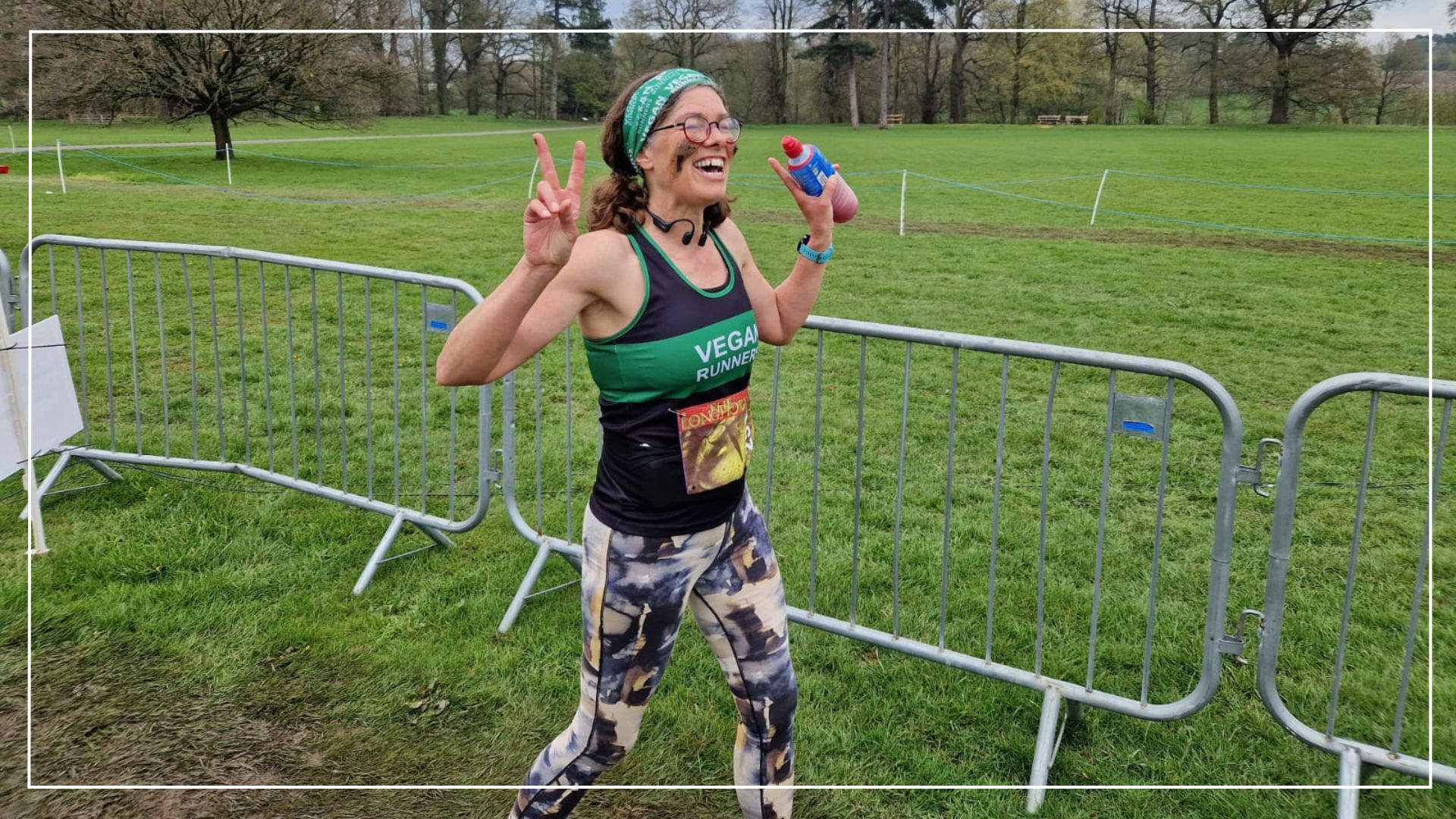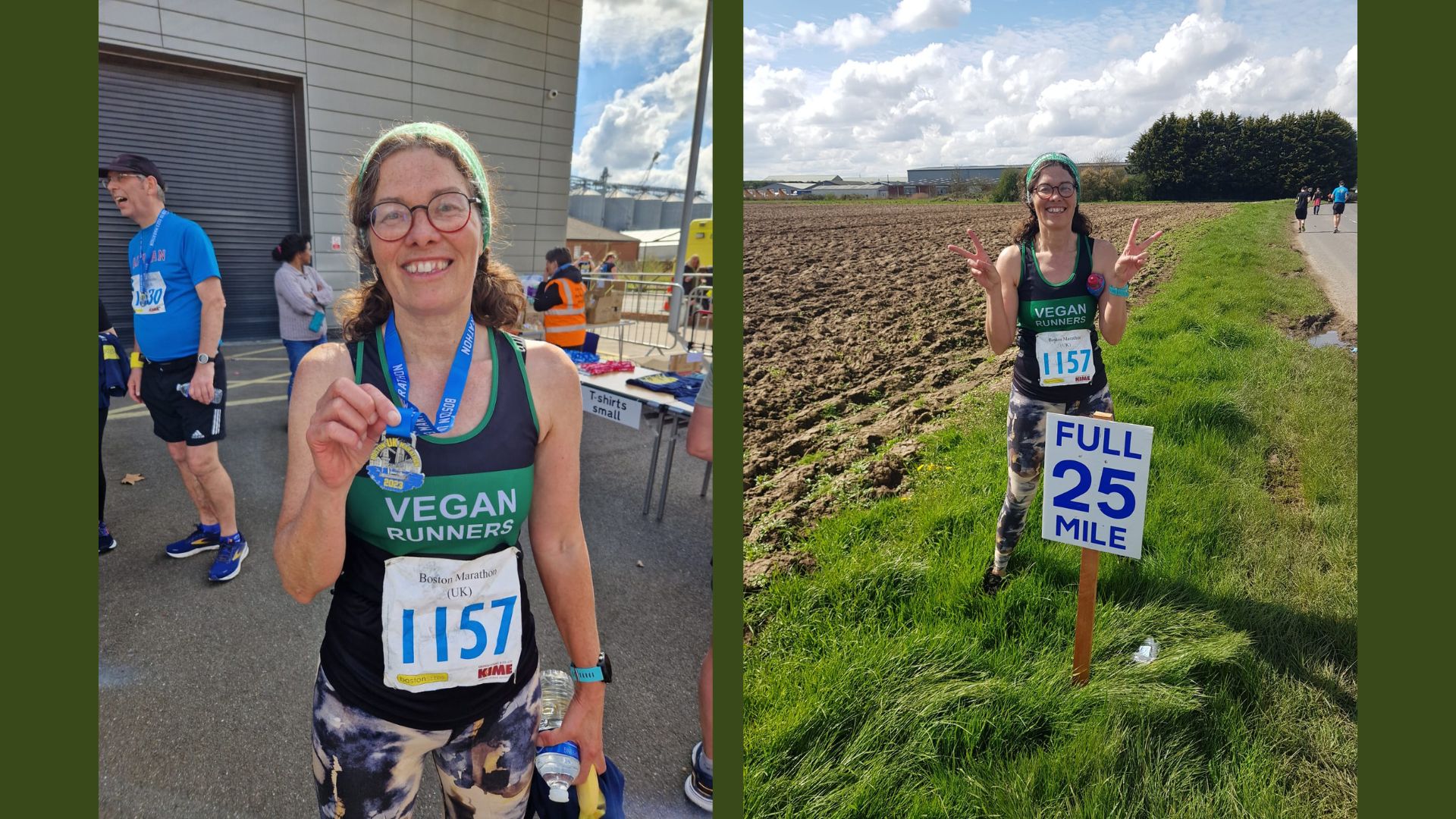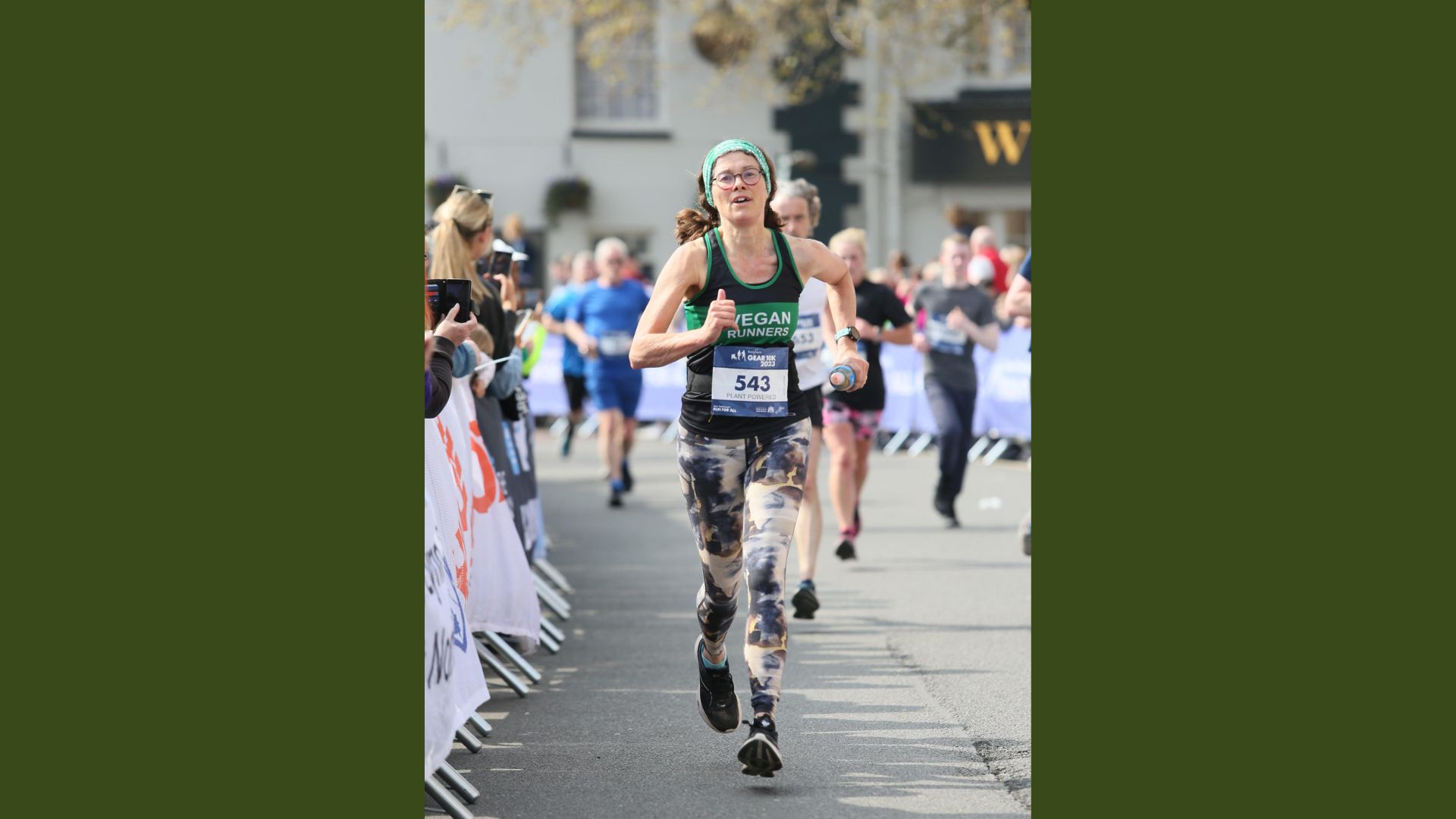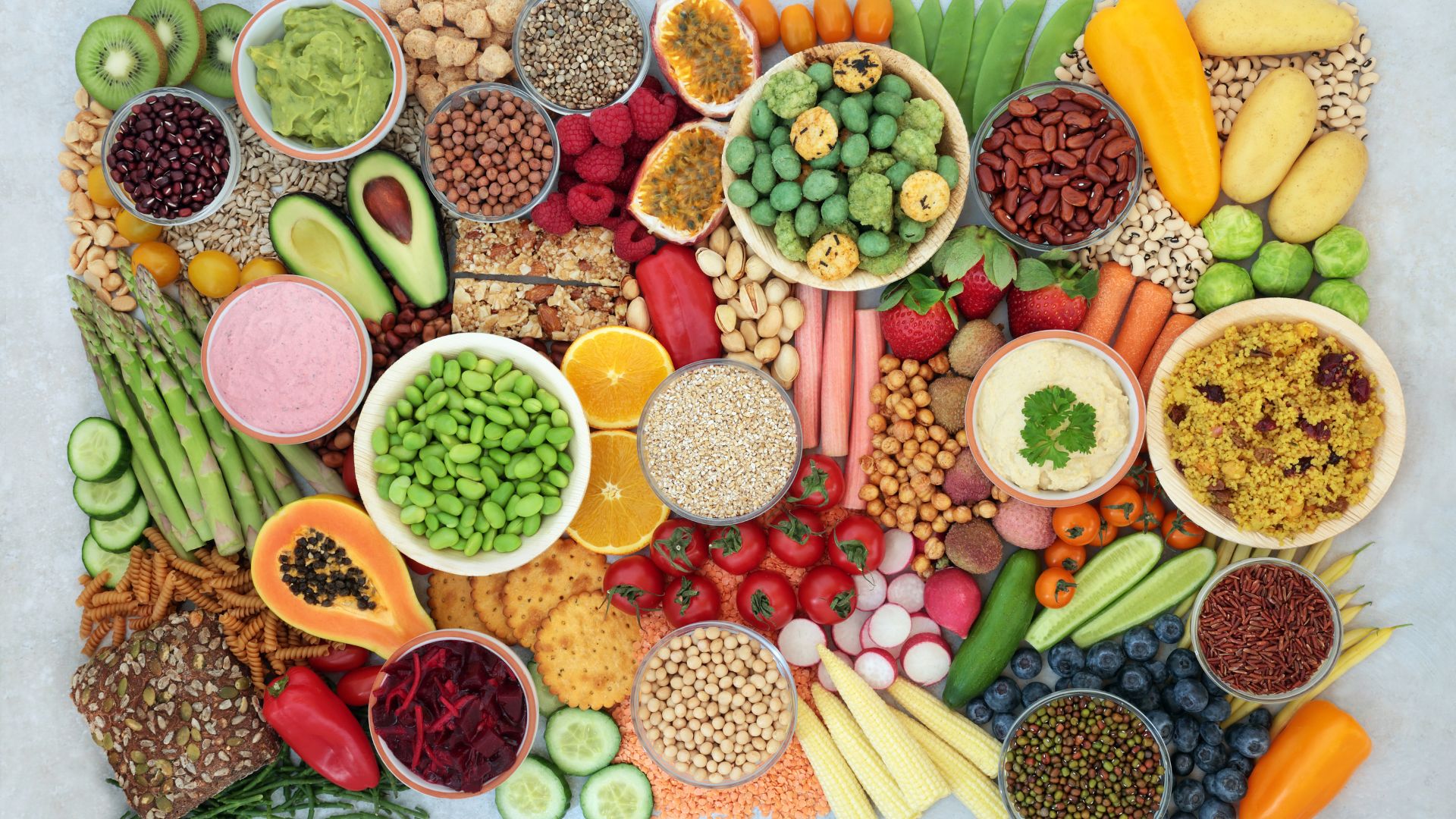How Running Changed My Life: "I have built my body from nothing"
Kate Dunbar, 59, found resilience, community, a whole new way of life in running following her diagnosis of psoriatic arthritis


There are still so many barriers to be broken down when it comes to our feeling of belonging in sport as women, but in woman&home's series, How Exercise Changed My Life, we meet those who are doing just that after changing their lives through sport after the age of 40, defying stereotypes and ageist narratives about what we are truly capable of at any age.
Of all the sports out there, running is certainly one of the most popular. Along with the millions who take to pavements and trails every day to run, a reported 1.1 million people take on a marathon - one of the largest competitive events at 26 miles long - somewhere in the world, every year, according to data by Run Repeat.
Kate Dunbar, who is just about to turn 60, is one of them. When we speak over the phone, she's a week fresh from the UK's Boston-Lincolnshire Marathon, her first-ever marathon, and a few days out from finishing another half-marathon.
"I'm feeling absolutely fine, totally recovered," she tells me with a laugh. "I did track training as well during the middle of the week. Apparently, you're not supposed to run much in the days after a marathon but that's the power of my diet, it's so anti-inflammatory, you heal quickly."
The concept of running a marathon, let alone a marathon and then a half-marathon in the space of two weeks, is far from many people's idea of possibility. For Kate, it's truly a situation she could never have imagined for herself.

Kate completed her first marathon this year.
Six years ago, Kate went running for the first time since being diagnosed with psoriatic arthritis at the age of 40, a health condition that can affect the joints of those with psoriasis, causing them to become swollen, stiff, and painful. "I got it into my head that I could try running just a bit on the soft sand [at the beach near my house]. I was trying not to impact my joints too much because of my condition. At first, I could only run three little bunny steps together because my muscles, joints, and tendons all felt really tight, but by the end of the week, I'd managed to run 30 meters," she says. "It was really really slow and more like a shuffle than a run. You couldn't really call it running."
Even this was a far reach from where Kate was 20 years ago though, when she was just starting to walk again after first experiencing early symptoms of the condition. "I was a teacher with two young children and I'd gone through a divorce. I wasn't looking after myself properly at all. When you're a teacher you work so hard anyway, but I wasn't getting enough sleep. I was very stressed. I didn't do any exercise and I didn't consider what I was eating at all," she says. "Then one summer I started developing a bad back and it quickly spiraled into painful joints and tendons all over my body."
Sign up to our free daily email for the latest royal and entertainment news, interesting opinion, expert advice on styling and beauty trends, and no-nonsense guides to the health and wellness questions you want answered.
While Kate naturally received the diagnosis from a doctor, she knew what was coming. "I suspected what it was because both my Mom and Grandma had psoriatic arthritis. My Mom had ended up in a wheelchair actually," she says. "I just slept the summer away on painkillers, I was signed off work, I was put on heavy immunosuppressant medication, and it took about a year to get back to any level of health."
"I just slept the summer away on painkillers."
Flitting between doctors' appointments at the time, Kate noticed that she felt worse after eating certain foods - mainly animal-based products like bacon, other red meats, and eggs. Although her doctor refused to believe her eating habits had any connection with the condition, Kate was already well on her way to making changes. "I'd been doing some research and decided that I was going to go vegan for ethical reasons, animals and the planet," she says. But while Kate switched to a vegan diet, it would be another 17 years before she realized its true potential and the benefits of running that were to come with it.
Not long after her trip to the beach six years ago, Kate went to an event in London and spoke to an ambassador for Vegan Runners, one of the largest running clubs in the UK. "I wasn't going to go up to her at all but there was nobody there. I said to her that I wasn't a runner but I'd love to be."
When probed further, Kate revealed her diagnosis as the reason why she felt she couldn't run, only for the ambassador to claim she had "reversed her own rheumatoid arthritis ten years previously after eating a whole-food, plant-based diet", and she had come off her medications.

Following her marathon, Kate completed another half-marathon just a week later.
"She suggested I try it. I had to go home and find out what it was, which wasn’t easy at the time, and then it took a while to give it a go myself. I also joined Vegan Runners at the time too, even though I still wasn’t a runner. It just felt like an intention somehow."
It's this switch to a whole-foods, plant-based diet that Kate now credits with the total transformation of her life. And it's all down to running, she says. "If it wasn't for running, I would never have come across the group, I would not have heard about the diet. I would not be well."
"After all, the pain of running a marathon is nothing for me compared to arthritis pain."
Despite progressing from a "shuffle" to several half-marathons, when the time came to sign-up for the marathon earlier this year, Kate's achievements so far didn't make the process any less daunting.
"I couldn’t actually believe anyone did a marathon, so never in a million years did I think I would do one myself," she says. "Even after running for a few years, the whole idea was terrifying, but my friend offered to help me train and I'm always up for a challenge. Once it was booked, I had something to aim for. I thought to myself it would prove to anyone and everyone the power of a whole-foods, plant-based diet. Not only am I off all my medications now but I have built my body from nothing."
The progress has given her more than she ever thought, from more resilience and the ability to persevere to a solid social circle and friends. "When you run, you put yourself through some tough challenges, which has given me grit and determination to push through over the years. After all, the pain of running a marathon is nothing for me compared to arthritis pain."
"Never in a million years did I think I would do a marathon myself."
"The social support doesn't half make you feel better too," she says. "When people are encouraging you, cheering you, making you feel better. You find that extra bit of energy. It's really lovely, everyone looks out for each other, and we've become close-knit friends, a little community really."
In this way, the sport has completely changed her life. "I'm nearly 60 and I don't just feel younger than I did in my 20s, I've got a Garmin watch and it tells me I have a fitness age of 20. I feel stronger, happier, and more alive than I did when I was in my 20s."
Kate continues to raise awareness of the benefits of a whole-foods, plant-based diet today through Plant-Based Health Professionals and taking part in campaigns such as Running on Plants.
What do the experts say?
As everyone's body is different, everybody will respond differently to diet and exercise changes when it comes to managing long-term health conditions. What works for one person may not work for another. It's important to consult your doctor if you have concerns about managing any long-term health condition, including arthritis.
The experts certainly agree that a whole-foods, plant-based diet, combined with regular exercise can make a real difference when it comes to managing chronic, long-term health conditions, though.
Most studies on the subject have looked at rheumatoid arthritis, a very similar condition to psoriatic arthritis. While research on whole-food, plant-based diets for symptom prevention is also limited, there is plenty of research on the positive effects of the Mediterranean diet, which is fairly similar, being based on whole grains, legumes, fruit, vegetables, nuts, and seeds, although it does include some animal products. A study by Grigore T. Popa University of Medicine and Pharmacy, for instance, found that the consumption of whole plant foods as part of the Mediterranean diet could aid symptoms in those with rheumatoid arthritis as it was proven to reduce inflammation.

Among the range of foods in a whole-foods, plant-based diet are fruits, vegetables, wholegrain rice, quinoa, nuts and seeds, chickpeas, beans, and more.
It's a concept that nutritionist Signe Svanfeldt agrees with too. "Eating a whole-food, plant-based diet, with foods rich in nutrients, fiber, protein, unsaturated healthy fats, vitamins, and minerals, is always beneficial for our health, both for dealing with, and preventing, long-term physical health conditions," she says.
"If the health condition is already present, a balanced, nutritious whole-food plant-based diet can help to manage symptoms and decrease the risk of other diseases. Having arthritis can, for example, increase the risk of cardiovascular diseases, so it’s extra important to eat a nutritious diet that can reduce the risk, rather than having a diet rich in food groups that can increase the risk, including saturated fats like butter, cream, meat, fried foods, and ultra-processed foods, and sugar," says Svanfeldt, who is also the resident nutritionist at healthy eating app Lifesum.
Tips for getting started with running
We have a guide on how to start running as a beginner, and here, Kate also shares her advice on getting started with running at any age:
- Don't be put off as a new runner: "It does feel really tough at first. I could have given up so many times but I didn’t," Kate says. "Coming from a place of such severe illness, it gave me some determination to push through."
- Wear the right kit: After mistaking a painful wire bra for a heart attack post-run on one occasion, Kate suggests investing in the right kit is key for comfort. For guidance and inspiration, take a look at our guides on the best running shoes for women and the best sports bras.
- Eat well: This will look different for everyone but Kate swears by the benefits of a whole-foods, plant-based diet, as noted. "I feed my body on whole plant foods and I am running further and faster all the time. Beans, lentils, tofu, nuts and seeds, whole grain bread, and more will power your muscles through."
- Join a community: "I love being part of the running community on Strava, lots of my Vegan Runners friends are on there too," Kate says. "Run with a friend as well, if they were not your friend before then they will be once you’ve got a couple of miles in together."

Grace Walsh is woman&home's Health Channel Editor, working across the areas of fitness, nutrition, sleep, mental health, relationships, and sex. She is also a qualified fitness instructor. In 2025, she will be taking on her third marathon in Brighton, completing her first ultra marathon, and qualifying as a certified personal trainer and nutrition coach.
A digital journalist with over seven years experience as a writer and editor for UK publications, Grace has covered (almost) everything in the world of health and wellbeing with bylines in Cosmopolitan, Red, The i Paper, GoodtoKnow, and more.